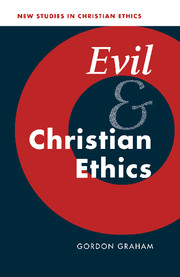1 - Christian ethics or moral theology?
Published online by Cambridge University Press: 03 December 2009
Summary
The intellectual position of Christianity in the modern world, by which I mean Western Christendom at the turn of the twenty-first century, is largely one of retreat. As it seems to me, theologians, and believers more generally, have lost confidence in the relevance of Christian theology to the explanatory endeavours of intellectual inquiry. This is evidenced by the fact that in physics, biology, history, law, social theory and psychology, less and less (almost nothing indeed) is heard of the role of theological conceptions, conceptions which at one time dominated all these disciplines to the point where theology could be described as ‘the queen of the sciences’. So far have we moved away from that condition, that hardly anyone confidently deploys theology in the discussion of intellectual problems in cosmology, evolutionary biology, historiography, jurisprudence or metaphysics. It is true that there are exceptions, but for the most part it is so. Even human health, both physical and mental, is held to be the province of physiology, microbiology, neurology and psychiatry, and social well being is the subject of political and economic science. The generalised behaviour of people is investigated by sociology and anthropology, that of individuals by psychology. In short, furthering our understanding of the world in which we find ourselves is thought to lie with something called ‘science’, both natural and social, while theology is widely regarded as ‘unscientific’. Indeed, ‘theological’ is used by the media (in political commentary for example) as a label for the doctrinaire and the irrelevant, or worse the obscurantist.
- Type
- Chapter
- Information
- Evil and Christian Ethics , pp. 1 - 28Publisher: Cambridge University PressPrint publication year: 2000



